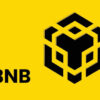
As Bitcoin gains popularity and becomes a mainstream investment, securing your Bitcoin wallet has never been more crucial. Bitcoin wallets store your private keys, which are essential for accessing and managing your cryptocurrency. Without proper security measures, your digital assets could be at risk of theft or loss. This article provides a comprehensive guide to securing your Bitcoin wallet with best practices to ensure the safety of your investments.
Introduction
Securing your Bitcoin wallet is vital for protecting your assets from theft, hacking, and other security threats. Whether you’re a new investor or a seasoned Bitcoin holder, understanding and implementing effective security measures is essential. This guide covers the best practices for securing your Bitcoin wallet, from choosing the right type of wallet to employing advanced security techniques.
Types of Bitcoin Wallets
1. Hot Wallets
Hot wallets are connected to the internet and are used for frequent transactions. They include software wallets (applications for your computer or mobile device) and web wallets (online services). While convenient, hot wallets are more vulnerable to cyber threats.
- Software Wallets: Applications like Electrum or Exodus.
- Web Wallets: Online platforms such as Coinbase or Blockchain.info.
2. Cold Wallets
Cold wallets are offline and are used for long-term storage. They include hardware wallets and paper wallets. Cold wallets offer enhanced security by keeping your private keys away from internet exposure.
- Hardware Wallets: Physical devices like Ledger Nano S or Trezor.
- Paper Wallets: Printed documents containing your private keys.
Best Practices for Securing Your Bitcoin Wallet
1. Use a Reputable Wallet
Choose a reputable and well-reviewed wallet provider to ensure that your wallet software is secure and trustworthy. Research different wallets to find one that meets your security needs and preferences.
- Reputation: Look for wallets with positive reviews and a history of reliable security.
- Updates: Ensure the wallet provider regularly updates its software to address security vulnerabilities.
2. Enable Two-Factor Authentication (2FA)
Two-Factor Authentication (2FA) adds an extra layer of security by requiring a second form of verification in addition to your password. This can include a code sent to your phone or generated by an authentication app.
- Authentication Apps: Use apps like Google Authenticator or Authy.
- SMS Verification: Set up 2FA via SMS for an additional layer of protection.
3. Use Strong and Unique Passwords
Create strong, unique passwords for your Bitcoin wallet and associated accounts. Avoid using easily guessable passwords or reusing passwords from other accounts.
- Password Creation: Use a mix of uppercase and lowercase letters, numbers, and special characters.
- Password Managers: Consider using a password manager to generate and store complex passwords securely.
4. Backup Your Wallet Regularly
Regularly back up your Bitcoin wallet to ensure you can recover your funds in case of hardware failure or loss. Store your backups in a secure location, such as an encrypted external drive or a safe deposit box.
- Backup Methods: Create multiple backups and store them in different physical locations.
- Encryption: Encrypt your backup files to protect them from unauthorized access.
5. Keep Your Private Keys Secure
Your private keys are the most critical aspect of your Bitcoin wallet. Keep them private and never share them with anyone. Store them securely in a place that only you can access.
- Offline Storage: Store private keys in a secure offline location, such as a hardware wallet or a paper wallet.
- Avoid Digital Storage: Do not store private keys in plain text on your computer or online.
6. Regularly Update Your Wallet Software
Keeping your wallet software up to date is essential for protecting against known vulnerabilities and security threats. Ensure that you install updates as soon as they become available.
- Software Updates: Enable automatic updates if available, or manually check for updates regularly.
- Security Patches: Apply security patches and updates promptly to protect against new threats.
7. Beware of Phishing Scams
Phishing scams attempt to steal your private keys or login credentials by tricking you into providing sensitive information. Be cautious of emails, websites, or messages that ask for your wallet details or direct you to unfamiliar sites.
- Verify Sources: Only interact with official websites and trusted sources.
- Suspicious Links: Avoid clicking on links from unknown or unverified sources.
8. Monitor Your Wallet Activity
Regularly check your wallet activity for any unauthorized transactions or suspicious behavior. Early detection of irregularities can help you take action before significant losses occur.
- Transaction Monitoring: Review your transaction history and set up notifications for unusual activities.
- Alerts: Use wallet features or third-party services to receive alerts for account changes.
Advanced Security Measures
1. Multi-Signature Wallets
Multi-signature wallets require multiple private keys to authorize transactions, adding an extra layer of security. This feature can prevent unauthorized transactions and improve overall wallet security.
- Setup: Configure multi-signature settings based on your security needs.
- Collaboration: Use multi-signature wallets for joint accounts or business purposes.
2. Hardware Wallets
Investing in a hardware wallet is one of the most secure ways to store your Bitcoin. Hardware wallets keep your private keys offline and provide robust protection against online threats.
- Top Choices: Consider devices like Ledger Nano X or Trezor Model T.
- Secure Setup: Follow manufacturer instructions for secure setup and usage.
Conclusion
Securing your Bitcoin wallet is a crucial step in protecting your digital assets from theft and loss. By following these best practices, including choosing a reputable wallet, enabling two-factor authentication, using strong passwords, and keeping your private keys secure, you can significantly reduce the risk of security breaches. As Bitcoin continues to evolve, staying informed about the latest security measures and technologies will help ensure the safety of your investments.
For anyone holding or investing in Bitcoin, implementing these security practices is essential for safeguarding your assets and maintaining peace of mind in the digital financial landscape.











